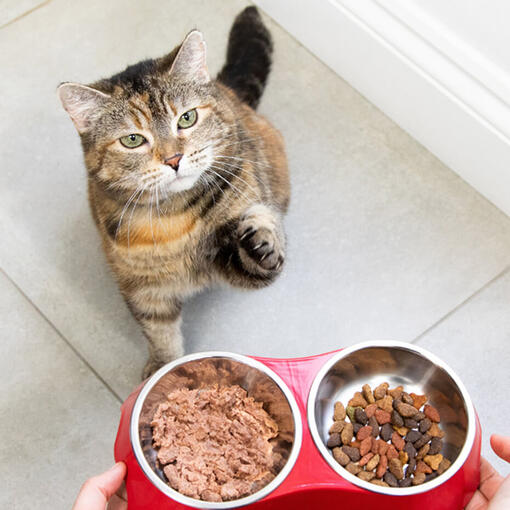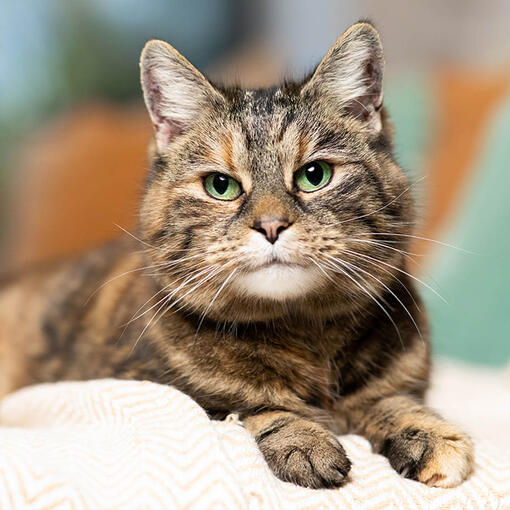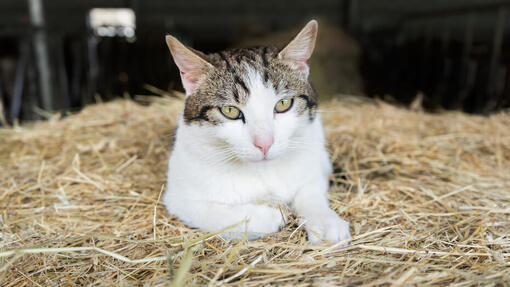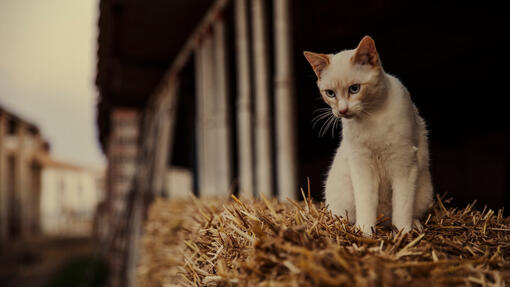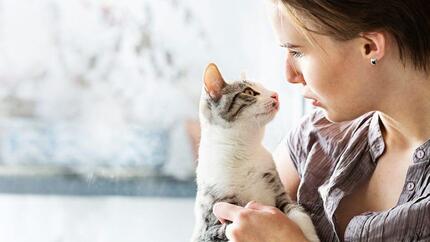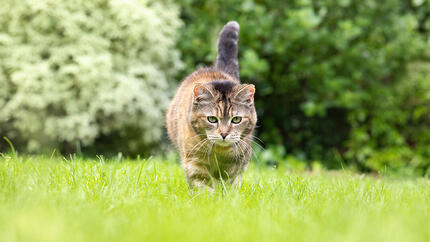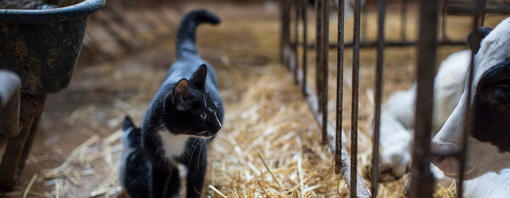
Some cats enjoy being taken care of in a domestic environment, others require constant attention on top of that, and then there are farm cats. They are one of the most independent and self-reliant types of domestic animals. Give them a loving home and free reign over a back yard, a barn, or, of course, a farm, and they will be in their element.
If you’re thinking about adopting a barn cat, we’ve put together a short guide on what to expect. Read on to learn more about the process of adding an outdoor, independence-loving feline to your household.
What is a barn cat?
Barn, outdoor, farm, or community cats are usually mixed-breed cats who live free-roaming lives outdoors, and who may like to keep their distance from people. They may be feral in some cases, meaning that they may not like interacting with humans at all.
The most important thing to keep in mind when considering adopting farm cats is that you’d be taking on the role of a protector and not that of an owner or friend. Even though a barn cat can grow to become friendlier and more confident around you, your main role will be to provide food, shelter, and care, and not necessarily to have the type of relationship where you are in close proximity and enjoying a close bond.
In addition, don’t let the ‘barn cat’ name mislead you; you don’t actually need to have a barn or a farm in order to adopt one. Any type of home with a large, informal – and most importantly, safe - outdoor space would be good as long as they can be allowed freedom and preferably some areas of vegetation like a yard, garden, or field in which they can roam. As apex predators, who can quite probably survive without you, they also need opportunities to hunt.
Most barn cats are excellent and enthusiastic hunters and will keep vermin down but be careful this doesn’t bring you into conflict with neighbours. Farm cats are definitely not apartment cats so keep this in mind when looking to adopt one. Any cat is a big responsibility and it's important to consider all your options when it comes to getting a cat.
How to best care for farm cats
Overall, farm cats can be pretty low maintenance and don’t require as much care or attention as other cats. However, there are a few basic things you can do to prepare for life with a barn cat.
- Provide access to a permanent covered, warm, and weatherproofed shelter.
- Ensure that the surrounding area is safe for them and there are no hazards like chemicals, poison, or busy roads.
- Provide water and food daily and make sure to place it somewhere where other animals like foxes, badgers, and hedgehogs can’t reach it.
- Heated water bowls are a must in the depths of the winter or if you live in a cold region. If this is impossible, you need to check it several times a day. The same goes for shelter, which should contain extra bedding to provide enough warmth.
- You should ensure your cat has access to some kind of vegetation, like a garden, a field, or the woods.
- Before bringing new your cat home with you, make sure they have been through a thorough health check, and they’ve had all their vaccinations.
- Neuter your cat and make sure they’ve microchipped (and that the chip is up to date with your information).
- Get to know their habits and pay extra attention to their behaviour. Because these cats roam around more, they’re more likely to be injured so if you notice anything out of the ordinary, check with a trusted vet.
What you need to prepare for adopting a barn cat
Once you’ve made the decision to adopt a barn cat, it’s time to bring them home! Here are a few tips to make the transition easier for you and your new cat.
1. Prepare their shelter. For the first few weeks it’s best to keep them in a confined space until they get used to their new home. This might be in a garage, shed, or barn. If they’re let free right away, they might run away trying to find their old home.
2. Provide them with plenty of tasty food so they learn that this is a place of good resources and so it is worth staying around.
3. Give them time to settle. The best way to do this totally depends on their personalities and background. If they are feral and/or nervous, they will not welcome your attentions, and they will settle in far better left to their own devices to take in their new surroundings without the stress of your interference. If they are more confident, or have been around people in the past and are friendly or at least not worried by them, you can spend time around them but do not attempt to interact unless they actively seek that.
4. Keep the area they are in clean. The best way to do this is by making sure the area they are enclosed in is large enough that they can use a space far away from where they sleep and eat as a toilet. Most free roaming cats will find their own toileting area but while they are more contained, they need to be able to separate their toileting and their living areas.
5. Make sure they have daylight and plenty of fresh air and make this a pleasant environment that the cat is happy to be in.
6. Include plenty of environmental enrichment that simulate hunting opportunities, things to watch, different heights, things to climb, and plenty of places to hide, sleep and relax. These cats will often feel far more secure if they have places to hide.
7. Allow them plenty of freedom. When they’re used to their new environment (and to you if they like human company), allow them to roam freely but make sure they can always access their shelter, food and water easily when needed. This usually takes around four weeks.
Why farm cats are different from other cats
Farm cats can be great to have around and even though they might not be as friendly as house cats, they can grow to become fond of the people around them. Plus, they have plenty of qualities to compensate for their more independent nature.
- They’re excellent hunters used to going after small rodents like mice and so, if you live on a farm, they can be a great help with pest control.
- They love their independence which makes them low maintenance.
- They can bond well with other animals and so often make great stable cats.
- They definitely do not make good apartment pets since they’d much rather spend their time outside, exploring and being on their own – and close proximity to humans will often make them highly stressed. Having said that, you might find that once your free roaming cat has settled into their new home, they could well enjoy some home comforts every now and them if you leave a door or window open!
- Farm cats are often enthusiastic hunters and this can bring you into conflict with close neighbours – as if they don’t have good hunting opportunities, they will catch songbirds, baby rabbits and even indulge in a little ornamental pond fishing.
Adopting a cat, regardless, of whether it’s a house or a barn cat can be a wonderful experience. All cats are deserving of a safe and loving home so we hope this article was useful in answering all the questions you might have had about this topic. If you would like to look at alternative cat breeds, check out our articles on Pedigree cats and Tabby cats.
If you’re unsure about the type of cat that would best suit your lifestyle, try our Breed Selector Quiz to find out what other cats might be the best match for you.
Want to learn more about your cats? Check out this article on understanding your cat’s body language next.

